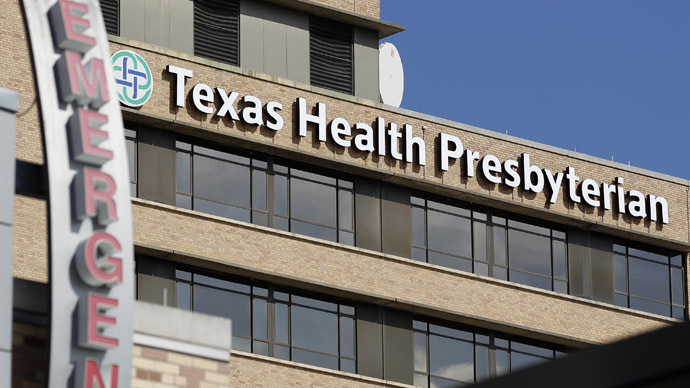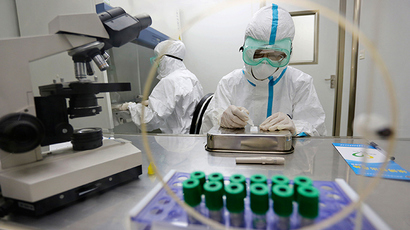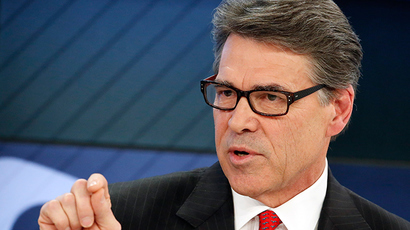100 people were in contact with Dallas Ebola patient – health officials

The Dallas Ebola patient had come into contact with as many as 100 people, according to Texas health officials. This figure is significantly higher than initially thought.
More than 80 people were in contact with the Ebola patient, including 12 to 18 people in direct contact, said spokeswoman for Dallas County's Department of Health and Human Services Erikka Neroes on Thursday. Later in the day Texas officials revised the number of contacts up to 100 people.
Previously health officials said 18 people, including five children, had connections to the Dallas Ebola patient, according to local media.
In addition to the new figure, Texas officials issued an order on Wednesday night for four family members of the patient to stay home as a precautionary measure, NBC reported.
They are legally required to follow the precautions until at least October 19, by which time the incubation period of the disease will have passed. Under the order the family will also have to comply with the requirements of health officials to provide blood samples and perform other medical tests.
According to health officials the incubation period is two to 21 days and people are not infectious until they develop symptoms.
Health officials confirmed on Thursday that the family members of the patient do not yet have any symptoms of the deadly Ebola virus.
The first time the patient, Thomas Eric Duncan, 42, presented to
hospital was on September 25 with fever and abdominal pain,
health officials said, adding that he did not exhibit any
symptoms specific to Ebola. However, Duncan returned to the Texas
Health Presbyterian Hospital Dallas via ambulance on September
28.
The next day he was admitted into strict isolation to be
evaluated for potential Ebola virus, based on the patient’s
symptoms and recent travel history, according to a statement by
the hospital.
Duncan recently traveled from Liberia, one of the three most Ebola-affected West African countries. The patient had no symptoms of the disease upon leaving Liberia or arriving in the US, CDC Director Dr. Tom Frieden said during a press conference on Tuesday.
READ MORE: ‘Thousands’ of US visas issued to residents in Ebola-stricken countries
The patient is the first and only confirmed Ebola case in the US.
Another US citizen has been put in isolation in Hawaii on
Thursday, with fears he may have Ebola, said the Hawaii
Department of Health, as cited by local media. However, officials
said he has not yet been diagnosed and it is unlikely that Ebola
has traveled to the remote islands in the Pacific.
"The hospital is being very careful, as they should be, to
take precautions making sure the patient is in isolation and
making sure the people and the public stay safe," Dr.
Melissa Viray of the Hawaii Department of Health told local ABC
affiliate KITV. "That being said, it's still an ‘if’. This is
not a for sure thing."
Health officials have said that US citizens should not worry
about an outbreak in the country as the virus is not airborne.
The virus is transmitted through blood or bodily fluids.
According to the World Health Organization (WHO), the average EVD
case fatality rate is around 50 percent, while case fatality
rates have varied from 25 percent to 90 percent in past
outbreaks.
The current outbreak of Ebola started in West Africa in March 2014. The number of patients with Ebola in Guinea, Liberia and Sierra Leone surpassed 6,500 with more than 3,000 deaths, according to the WHO. Health officials said it’s the largest and most complex Ebola outbreak since the Ebola virus was first discovered in 1976.














